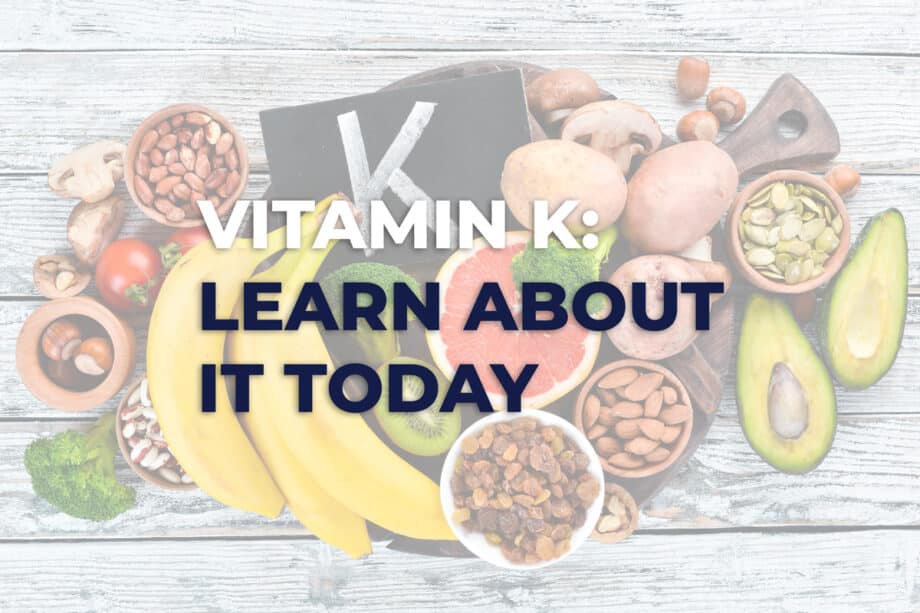When eating the colors of the rainbow, bulk up the green. While bitter in taste, leafy, green vegetables provide our bodies with essential vitamins and minerals. Today we will focus on one essential vitamin found in dark, leafy greens: vitamin K.
This vitamin supports blood clotting and bone density. The production of essential blood clotting proteins—prothrombin—requires Vitamin K. The synthesis of proteins that support bone density—osteocalcin—also requires Vitamin K. Intentional consumption allows you to support your health at the foundational level, allowing your body to resolve wounds through clotting and fostering sustained bone structure.
What Is Vitamin K?
It is a fat-soluble vitamin involved in the blood coagulation cascade. The blood coagulation cascade reflects that physiological process that supports the body in clotting blood and closing wounds. Vitamin K supports the production of the essential blood clotting protein prothrombin. It also supports bone density through its involvement in the production of the protein osteocalcin.
Daily Recommended Intake
Consuming an adequate amount is essential to feeling your best. The National Institute of Health offers the following daily recommended intakes for average, healthy adults.
- Adult Male: 120 micrograms/day
- Adult Female: 90 micrograms/day
You can consume this vitamin through your diet or through supplementation. Do whatever best supports your individual nutrient sufficiency.
Natural Sources of Vitamin K
We can consume this vitamin through whole foods. See common vitamin K sources below:
- Blueberries
- Broccoli
- Collard Greens
- Kale
- Pine Nuts
- Pomegranate Juice
- Spinach
Generally, we find this vitamin in dark, leafy greens, nuts, seeds, and other fresh produce. Many consume sufficient amounts of this vitamin through whole foods. However, nutrient gaps persist.
If you struggle to consume adequate amounts of this vitamin through food alone, consider supplementation! Supplementation exists to close nutrient gaps. If you have concerns about your individual health as it pertains to vitamin consumption and supplementation, reach out to your healthcare provider!
Can I Take Too Much Vitamin K?
Vitamins that are fat-soluble (A, D, E, and K) are not flushed out of the body as easily as water-soluble vitamins (C and B). Therefore, overconsumption of fat-soluble vitamins may lead to negative side effects. However, vitamin K does not pose the risk of toxicity that other fat-soluble vitamins do—just consume responsibly.
Does Supplement Source Matter?
In short, YES!
When supplementing, think about the supplement source and absorption mechanism. Some supplements appear more desirable because they offer 10x the daily recommended value. But if more product is present than needed, it does not benefit you. Your body will not absorb the excess. Seek out supplements that function on liposomal delivery systems. Liposomal delivery increases nutrient absorption by 150% when compared to traditional pill formulas.
If you choose to supplement vitamin K, consider adding vitamin D as well! These two vitamins work with calcium to increase nutrient absorption and sustain bone health.
Quick Facts
Vitamin K is a fat-soluble vitamin involved in the production of an essential blood clotting protein and an essential bone maintenance protein.
- What Does It Do: supports the blood coagulation cascade and sustained bone density
- How Much Do I Need: adult males—120mcg/day & adult females—90mcg/day
- Natural Sources: dark leafy greens, soybeans, and other fresh produce

